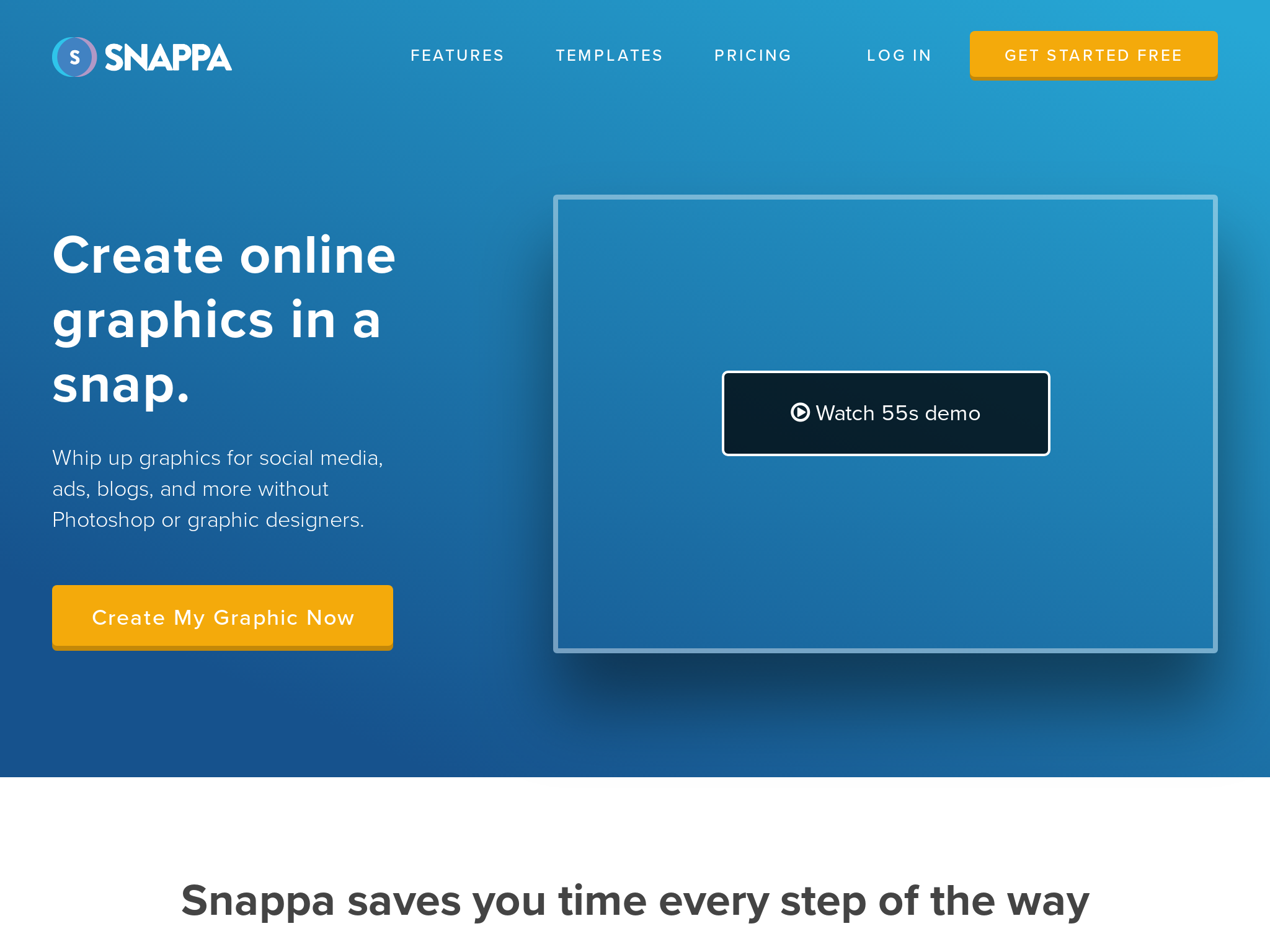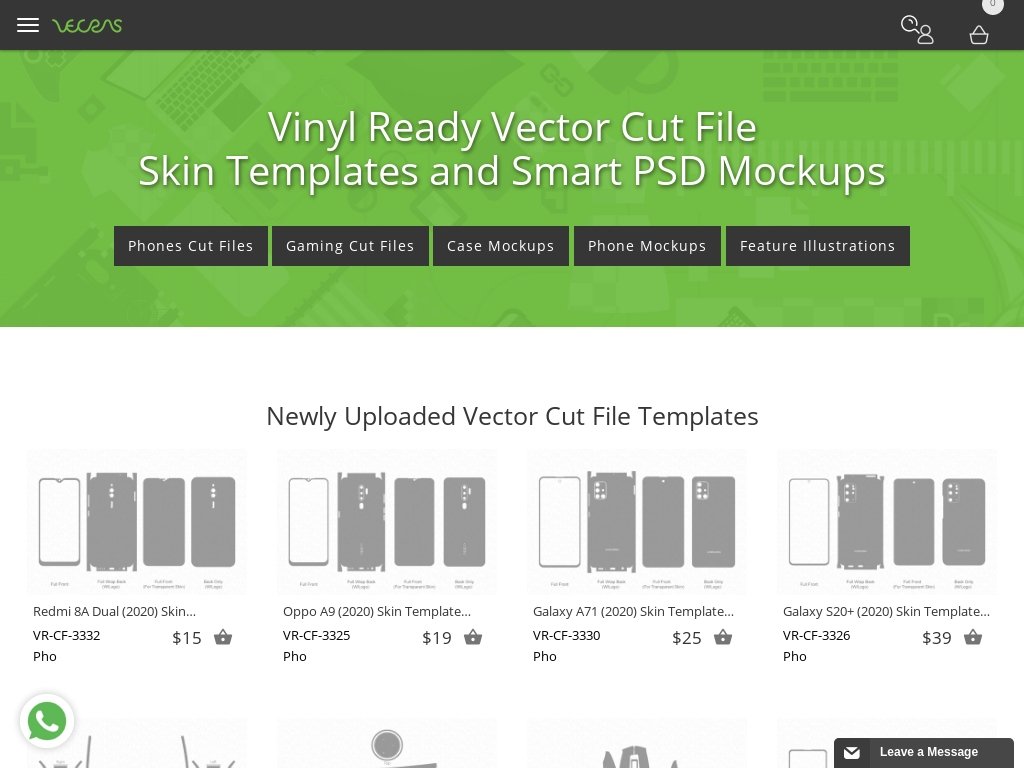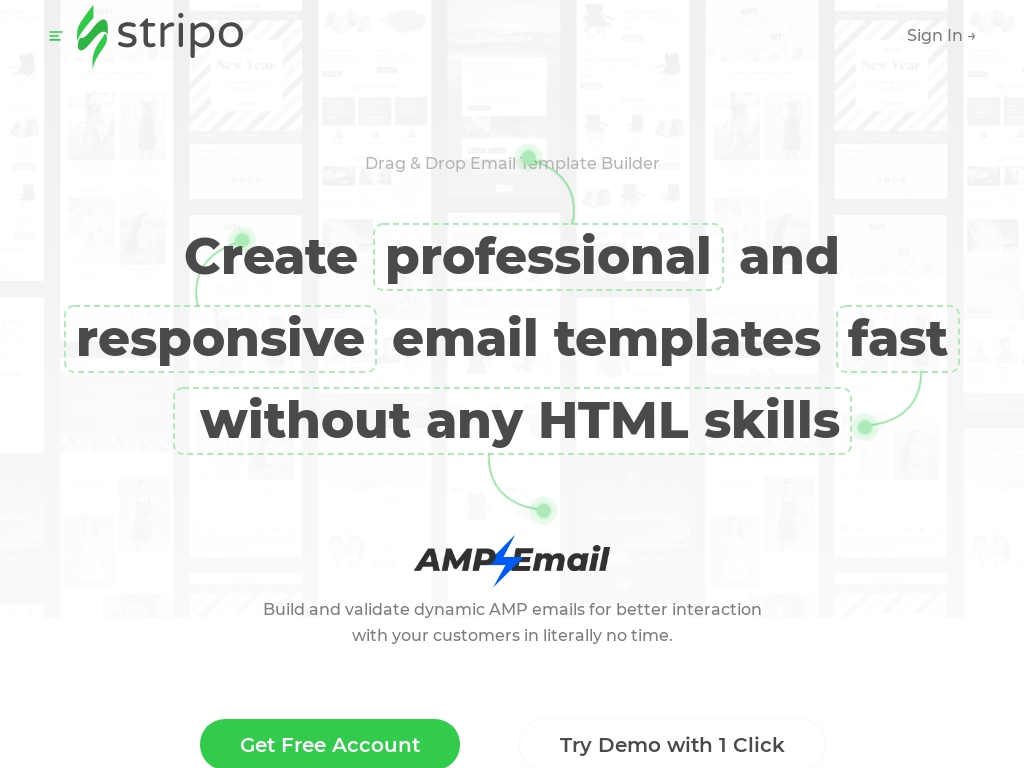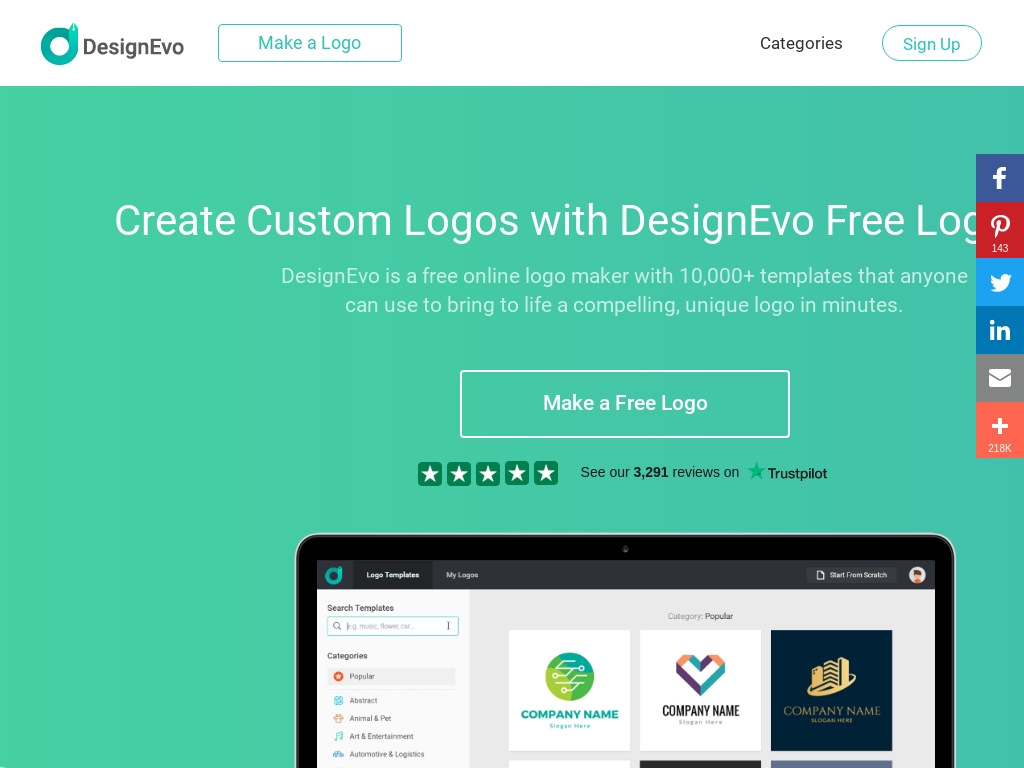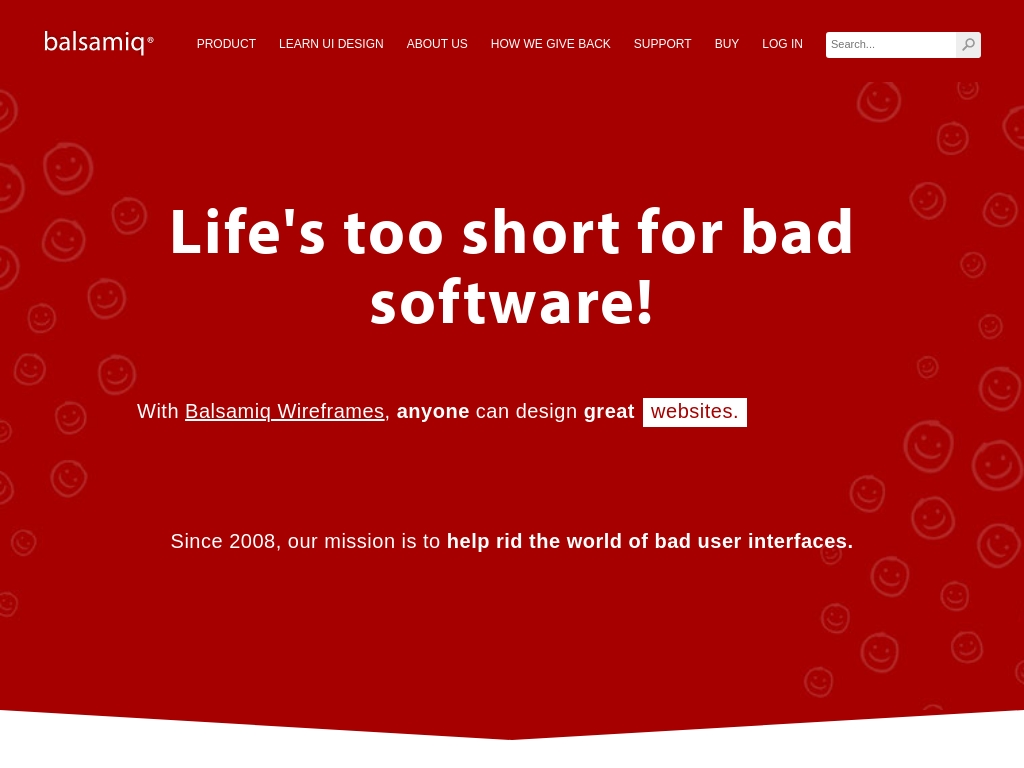
How Looka AI Transformed Logo Design into a $70K/Month Business
Who is Dawson Whitfield?
Dawson Whitfield, the founder of Looka, started the company in 2016 after a decade-long career as a designer, aiming to simplify and democratize logo creation through AI technology.
What problem does Looka solve?
Looka solves the problem of business owners needing affordable, professional logos and branding without the hassle and cost of hiring a designer.
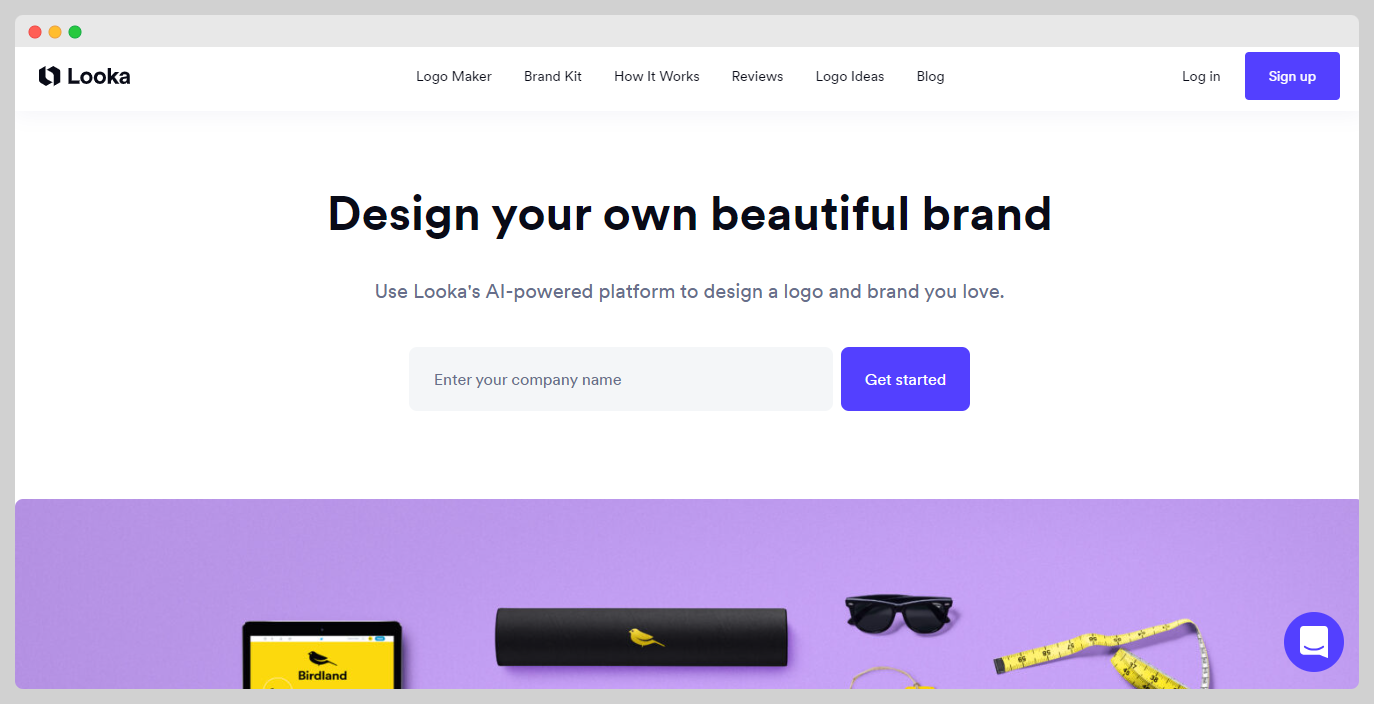
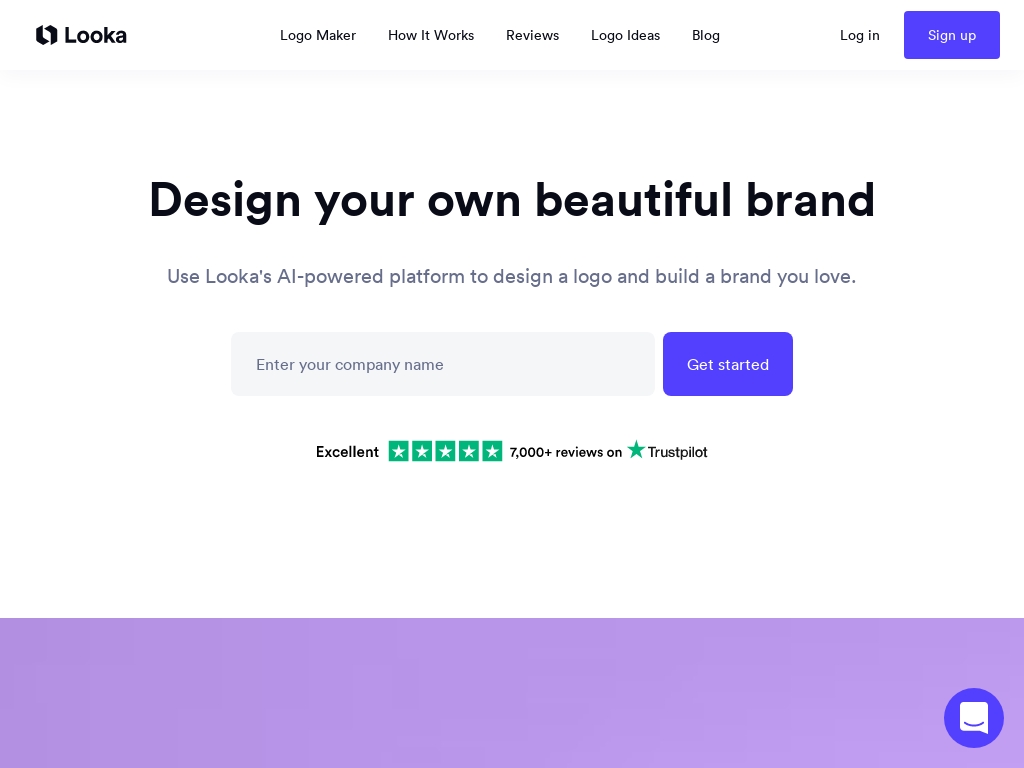
How did Dawson come up with the idea for Looka?
Dawson Whitfield, the founder of Looka, developed the idea for his business after a decade of working as a logo designer for clients. He found the traditional design process cumbersome and repetitive, often feeling like a "glorified font picker" due to the extensive back-and-forth revisions. Recognizing how time-consuming and expensive this process was, he saw an opportunity to streamline it, making design more accessible to those without design skills.
Dawson's observation that millions of people need logos every year led him to explore how technology, specifically AI, could simplify design. He validated his idea by checking Google Trends, which showed high demand for logo makers, reassuring him of the potential market. Inspired to offer a better solution than existing options, he partnered with Andrew B. Martin to integrate machine learning into the process, refining the platform based on user feedback and insights.
Despite the challenges of creating a tool that could produce quality designs comparable to a professional, Dawson persisted. He focused on ensuring the AI-powered platform would cater to users' diverse needs through unique and tailored designs. The key lesson he learned was the importance of addressing a clear pain point with technology, emphasizing the value of user-driven innovation.
How did Dawson Whitfield build the initial version of Looka?
Looka, previously known as Logojoy, was developed by Dawson Whitfield, who collaborated with CTO Andrew B. Martin to integrate machine learning into logo design. The initial version of the platform took about two and a half months to build, using a tech stack of PHP, MySQL, and jQuery. The process involved creating a robust system to define its own design rules by tracking user interactions like preferred designs and modifications. The challenge in development was largely centered around establishing a machine learning system that effectively optimized design outputs based on user behavior. Additionally, building a database of design components and preferences required significant data collection to make the AI functional and relevant for diverse design needs.
How did Dawson launch Looka and get initial traction?
Product Hunt Launch
Dawson Whitfield, the founder of Looka (originally Logojoy), successfully utilized Product Hunt to generate interest and attract their initial customers. The startup leveraged the platform's user base by getting someone with posting power to showcase Looka on a Tuesday, a strategic day for more visibility. This move helped attract significant attention, achieving 100 upvotes and an instant increase in site visits from curious potential users.
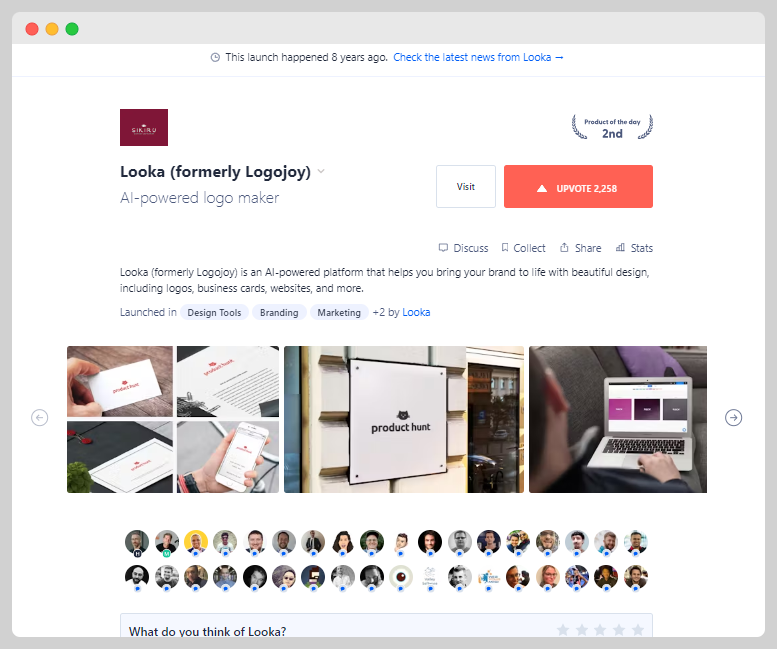
Why it worked: Product Hunt is a community highly focused on discovering new products, especially in the tech and startup sectors. A large portion of Looka's target demographic frequented Product Hunt, making it an excellent venue for visibility right from the onset, resulting in instant traction and initial sales engagement.
Social Media Outreach
In the early days of Looka, word of mouth played a crucial role in attracting initial customers through social media platforms. Dawson Whitfield and his team made a concerted effort to share their new product with their existing networks across various channels, including Facebook and Twitter. This grassroots approach was essential to getting the initial buzz within their social circles and beyond.
Why it worked: Leveraging existing networks and encouraging early adopters to share their experience allowed Looka to tap into a network effect. The importance of endorsement from people within the network helped Looka spread organically, resulting in more people trying out the service and becoming customers. This method provided credibility through personal connections, which was crucial before Looka established a larger marketing framework.
Pay-Per-Click Advertising
Looka experimented with pay-per-click (PPC) advertising early on to drive targeted traffic to their site. Initially investing about $250 per day, this tactic brought around 1,800 visitors daily, helping Looka reach a broader audience. The relatively low cost per click ($0.20) allowed them to cost-effectively introduce their service to people actively searching for logo creation solutions.
Why it worked: PPC advertising allowed Looka to reach potential customers who were already seeking similar services or solutions. By investing in PPC, Looka ensured they were capturing interested users at the precise time they had purchasing intent, thereby increasing sign-ups and logo purchases. Such an approach was instrumental in augmenting the initial organic growth strategies.
What was the growth strategy for Looka and how did they scale?
SEO
Looka has relied heavily on SEO as a growth channel, with SEO accounting for approximately 65% of its revenue. One of their strategies includes creating informative and shareable micro-sites like "How To Make a Logo," which not only provide value to users but also improve their SEO by attracting links and shares. Additionally, they have successfully integrated a business name generator to their platform, which also drives significant traffic through strategic keyword targeting. This tool not only assists users in brainstorming names for their ventures but also includes the option to purchase corresponding domain names, adding a monetization layer.
Why it worked: SEO is a long-term strategy that, when implemented effectively, can provide a continuous stream of free traffic. By investing in high-quality content that is both useful and shareable, Looka was able to rank well for relevant terms and drive consistent traffic to its site. The addition of functional tools like the business name generator enhances user engagement and provides additional conversion opportunities.
Word-of-Mouth Marketing
Looka's growth has also been significantly propelled by word-of-mouth marketing. After an initial launch on Product Hunt, where their presentation skills highlighted the quality of their logo designs, much of their subsequent traffic came organically. This viral effect was particularly notable with international markets, such as Japan becoming one of their largest sources of traffic soon after launch.
Why it worked: A compelling product that truly solves a problem can naturally encourage users to share their positive experiences with others. When users are impressed, they are more likely to recommend it, especially when the product is accessible online and relevant to global audiences. Looka's ability to generate high-quality results that resonate with users at a reasonable cost has encouraged organic growth through personal recommendations.
Product Hunt Launch
The initial boost in Looka’s growth was powered by a strategic launch on Product Hunt. By leveraging a platform popular among tech enthusiasts and early adopters, Looka was able to gain rapid visibility and traction. This launch strategy not only brought in a large number of initial users but also set the stage for the word-of-mouth growth that followed.
Why it worked: Product Hunt is a high-visibility platform that can introduce a startup to a broad audience quickly. A successful launch requires ensuring your product is polished and offers something distinctive and valuable to its users. Looka’s appealing and practical logo-generating capabilities were ideal for this tech-focused community, leading to significant initial engagement and discussions that further spread awareness.
What's the pricing strategy for Looka?
Looka offers a free logo creation tool with paid packages starting at $20 for basic and $65 for premium, which includes vector files.
What were the biggest lessons learned from building Looka?
- Embrace Technological Innovation: Looka leveraged AI to simplify the logo design process, making it accessible and efficient for non-designers. Aspiring founders should explore technological advancements to streamline their own business processes.
- Prioritize User Experience: By focusing on presentation and usability, Looka created an intuitive platform that attracted and retained users. Founders should ensure their product is user-friendly and visually appealing to maximize engagement.
- Harness SEO Early: Looka's significant revenue was driven by effective SEO strategies. For new entrepreneurs, investing in SEO early can provide substantial long-term traffic without recurring costs.
- Fail, Learn, Repeat: The founder's past failure served as a learning experience, underscoring the importance of resilience. Entrepreneurs should view setbacks as opportunities for growth and be ready to iterate based on lessons learned.
- Expand Offerings Gradually: Starting with logo creation, Looka expanded to a full suite of branding tools as they grew. Start with a focused offering and expand based on user needs and market demand.
Discover Similar Business Ideas Like Looka
|
|
Idea
|
Revenue
|
|---|---|---|
|
Snappa
|
Graphic design tool for non-designers.
|
$83.5K
monthly
|
|
VecRas Creation...
|
Digital templates for gadget skin design and cutting.
|
$12K
monthly
|
|
Stripo
|
No-code email template builder for marketers.
|
$410K
monthly
|
|
Page Flows
|
Subscription video library for digital product design inspiration.
|
$4.49K
monthly
|
|
DesignEvo
|
Easy online logo maker for non-designers.
|
$50K
monthly
|
|
Logobly
|
"Instant logo design for internet startups."
|
$1K
monthly
|
|
Balsamiq
|
Low-fidelity wireframing tool for software designers.
|
$550K
monthly
|
More about Looka:
Who is the owner of Looka?
Dawson Whitfield is the founder of Looka.
When did Dawson Whitfield start Looka?
2016
What is Dawson Whitfield's net worth?
Dawson Whitfield's business makes an average of $70K/month.
How much money has Dawson Whitfield made from Looka?
Dawson Whitfield started the business in 2016, and currently makes an average of $840K/year.

Download the report and join our email newsletter packed with business ideas and money-making opportunities, backed by real-life case studies.

Download the report and join our email newsletter packed with business ideas and money-making opportunities, backed by real-life case studies.

Download the report and join our email newsletter packed with business ideas and money-making opportunities, backed by real-life case studies.

Download the report and join our email newsletter packed with business ideas and money-making opportunities, backed by real-life case studies.

Download the report and join our email newsletter packed with business ideas and money-making opportunities, backed by real-life case studies.

Download the report and join our email newsletter packed with business ideas and money-making opportunities, backed by real-life case studies.

Download the report and join our email newsletter packed with business ideas and money-making opportunities, backed by real-life case studies.

Download the report and join our email newsletter packed with business ideas and money-making opportunities, backed by real-life case studies.
